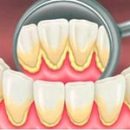How to recover after the stress of the accident? How to get behind the wheel and not afraid? Answers to these questions you will find in the article.
Content
What to do in this case - the question is not for absentee discussion. The success of psychological rehabilitation after an accident depends primarily from the diagnosis of the situation, and it is worth it individually, otherwise you can achieve completely opposite results. But at least in the first approach you can talk about why such a similar «Afteravary syndrome»? And if such syndrome suddenly appeared, how fast he can pass «By itself», And maybe at all?
The occurrence and duration of the syndrome depends at least from three factors.
First factor. The severity of the accident itself
Everyone appreciates it subjectively. But the harder it takes the person who happened to him the road accident, the greater the likelihood of occurrence «Afteravary syndrome». It will not forget that «severity» not limited to physical injuries, although it is, of course, first of all. It may be more difficult enough to be material damage - it can be said that, «glands», But often it can be significantly subcode, especially if the car was «Means for making money»…
And of course, significantly increases «Psychological severity» experienced the fact that heavier damage gets in an accident or God forbid, a passenger or pedestrian dies. In such cases, the feeling of guilt may generally prevent a person ever getting driving. But such reactions are already dependent on the personal features of the driver.
Factor second. Personal features
Different people perceive the incidents occurring in different ways. Consider three approximate types of response. Of course, that's «The most superficial generalizations», And for sure real personalities can combine several signs. Moreover, these features equally can meet both men and women.
«Likhach». This is a person with a fast reaction and explosive temperament that enjoys the driving process itself - especially ride fast and as a rule, risky. Such people often fall into the accident, but tend to blame in all others - in many ways because they themselves have infantile thinking (at least on the road) and simply unable to predict the development of the situation «Further your bumper».
If such a driver falls into the next road accident - then most likely, there will be no syndromes to worry. As soon as new fractures heal, he again «Ready to fight», And with the same degree of risk. Accidents for him belong to the section «Natural costs» - So the playing casino is not frustrated because of the next loss, because the loss is an integral part of the game process… So for the Likhach accident - the mandatory part of the process «Fast driving». And if in these incidents by the fault of Likhach, someone suffered - he sometimes would not make any court to feel guilty… At least as long as he intellectually matures.
 «Careful». Honestly, he does not like to drive a car at all and does it what is called, only «of necessity». It usually does not exceed the speed, it tries to keep the rules of movement and generally takes care of safety. However, he sometimes does not pass the accident - he either does not have time to react to the change of the road situation, or it will not be able to dodge Likhach, or in some stressful situation it will react inadequate… In any case, if such a person fell into an accident - his postavary syndrome will always have almost always. Especially if there are victims among its passengers - it is such a driver who suffers from the feeling of guilt. And even if the court proves that he is not to blame in the accomplished!
«Careful». Honestly, he does not like to drive a car at all and does it what is called, only «of necessity». It usually does not exceed the speed, it tries to keep the rules of movement and generally takes care of safety. However, he sometimes does not pass the accident - he either does not have time to react to the change of the road situation, or it will not be able to dodge Likhach, or in some stressful situation it will react inadequate… In any case, if such a person fell into an accident - his postavary syndrome will always have almost always. Especially if there are victims among its passengers - it is such a driver who suffers from the feeling of guilt. And even if the court proves that he is not to blame in the accomplished!
However, the duration of the syndrome here depends on how strong is that «need», which forced the car at all. If it is necessary to get behind the wheel almost immediately after what happened - the person most often will sit down and go. It is clear that his probable syndrome «Going deep into», and «consequences» in the form of underlying fear and t.NS. - Most likely will remain, but not to completely lose the psychological ability to control the car.
«Actor». For this person not only on the road, but in all life is important, «what it looks like». And above all - what does he look like. If he leads the car, then it does, alas, not optimal way - sometimes it is precisely because he «I want attention to him». We can say that sometimes on the road he is just «I do not know how not to interfere». For example, it is quite capable of going exactly between two rows: they say, but at the same time, many will surely look at him to the salon to see, «who is so unusually driving»! And he falls into an accident most often for the same reason - if driving a complex intersection, suddenly decided to fix the hairstyle or clothes, if the elegant long coat was confused in pedals, or prevented steep trendy boots…
In such a driver, the afteravary syndrome occurs often, but no matter how cynically, in most cases, it is because he wants to attract maximum attention to his experiences. And his manifestation of syndrome is often delayed to the inability: «You just listen that I had to survive!» In the most acute cases, fear of the control turns into a phobia - not to mention the personality data is inclined to the so-called somatization of the problems, which does not affect the speed of their physical rehabilitation.
Factor third. Reaction of surrounding society
Most often, the afternoon syndrome occurs and long holds, if:
- surrounding provoke I «vividly accepted» Those very «Bright narratives about experiences» - In other words, if the actor has grateful spectators;
- If cautious in life «no right to error». In this case, even small «tin» can be perceived by him as a severe accident (after all, he will receive incommensurable censure!) and can lead to the fact that a person never sees the wheel at all, because it will constantly have the unbearable load of responsibility…
And to prevent the occurrence of the syndrome can the following:
- If you get behind the wheel again «Forces the need» - What is called without a car in no way, but there is no one else to go: it can become a serious help in the question of gradual psychological rehabilitation;
- And if a person has a friendly relationship with loved ones: in any case, in the process «mental recovery» there is someone to morally support, cheer up and wish good luck!









